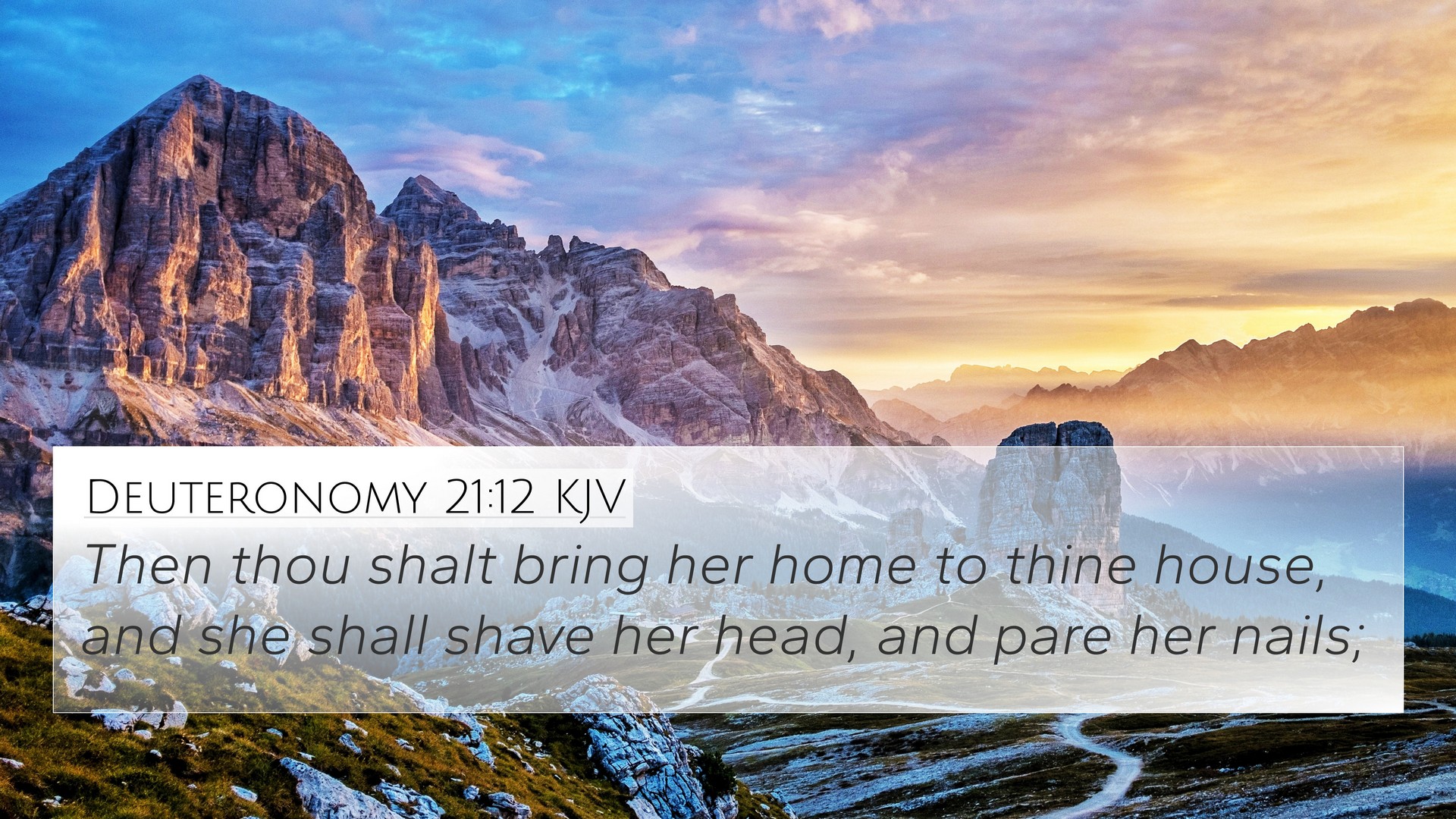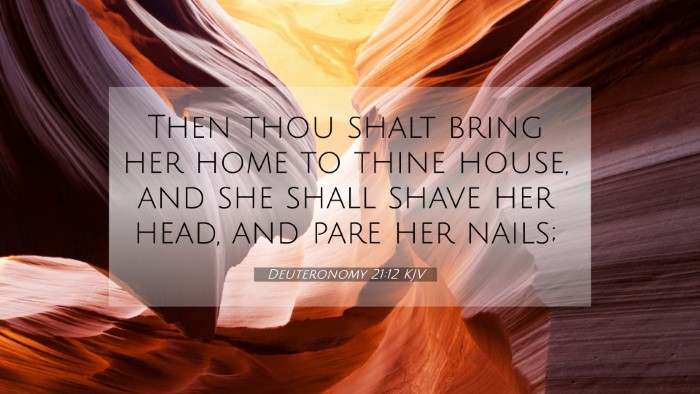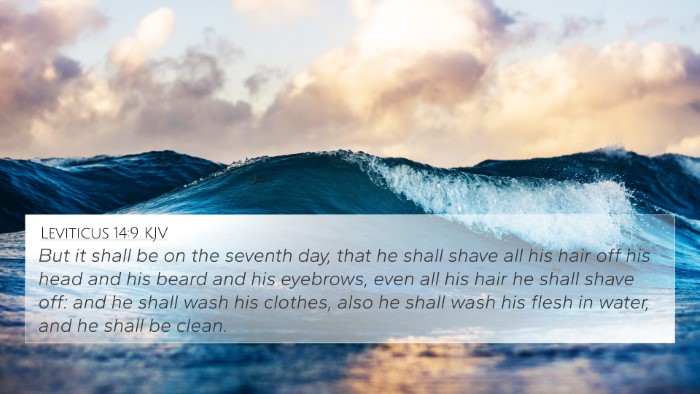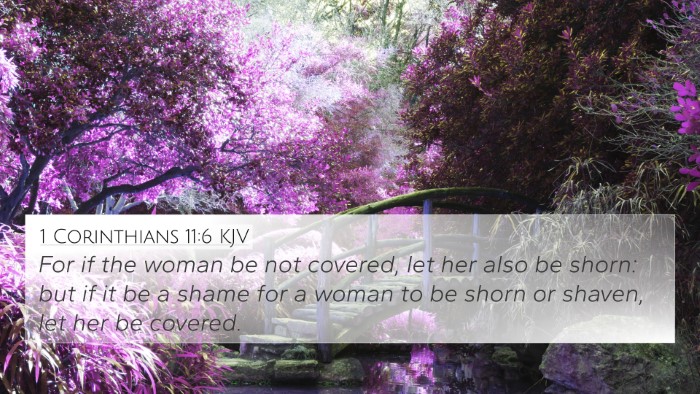Understanding Deuteronomy 21:12
Bible Verse: Deuteronomy 21:12 (ESV) - "then you shall bring her home to your house, and she shall shave her head and pair her nails."
Summary of Insights
This verse provides a glimpse into the laws that govern the ancient Israelite community regarding captured women. The overarching theme of this passage revolves around the treatment of women, particularly in wartime contexts, and the necessity of integrating them into the community respectfully.
Commentary Insights:
-
Matthew Henry's Commentary:
Henry emphasizes the importance of humane treatment and offers a moral reflection on the practices regarding captives. He indicates that the ritual of shaving the head and cutting nails is a sign of transition, signifying the woman’s shift from captivity to a dignified position within the Israelite community.
-
Albert Barnes' Notes:
Barnes notes that this law underscores the importance of ritual purification and the acknowledgment of the woman's individuality. He asserts that this process is meant to prepare her for integration into the household, away from the status of property to that of a family member with rights.
-
Adam Clarke's Commentary:
Clarke discusses the practical reasons for these laws, suggesting they serve to ensure that the women are treated with dignity upon their entry into the community. His interpretation highlights the cultural context, stating that the rituals were necessary for both social acceptance and personal dignity in a historically brutal situation.
Bible Verse Cross-References:
- Exodus 21:10-11: Discusses protections for wives, emphasizing their rights in marriage.
- Numbers 31:18: Relates to the capturing of women in war and their subsequent treatment.
- Deuteronomy 24:1: Offers insight into the laws concerning divorce and the importance of women’s rights within the context of marriage.
- Matthew 5:27-28: Jesus’s teachings regarding adultery and the heart, providing a New Testament perspective on the treatment of women.
- 1 Timothy 2:9-10: Paul’s instructions concerning women’s mode of dress and demeanor, aligning with the dignity theme.
- John 4:7: The encounter between Jesus and the Samaritan woman, showcasing the respect for women and their voices.
- Galatians 3:28: Highlights the essential equality of men and women in Christ, echoing the dignified treatment prescribed in Old Testament laws.
- Isaiah 54:5: Describes God as a husband to the abandoned; a comforting scripture that speaks to the dignity of women in relation to God.
- Proverbs 31:30: Discusses the virtuous woman, reinforcing the theme of respect and value placed on women.
- Esther 2:7: The journey of Esther and the respectful treatment of women in positions of impact.
Significance of Cross-Referencing:
Understanding the connections between Bible verses, such as Deuteronomy 21:12 with the above-listed verses, enhances the depth of comprehension regarding God’s intentions for human relationships, especially the treatment and rights of women in various contexts.
How to Use Bible Cross-References:
Engaging in cross-referencing can enrich your Bible study experience. Here are some tips:
- Use a Bible Concordance: This tool can help you locate verses related to specific themes or concepts.
- Comparative Bible Verse Analysis: Look for scriptures that discuss similar themes, such as dignity and respect.
- Bible Reference Resources: Consult a comprehensive Bible cross-reference guide to identify deeper connections.
- Cross-reference Bible Study: Incorporate themes from Deuteronomy 21:12 into your Bible readings for wider understanding.
- Thematic Bible Verse Connections: Group verses by themes like dignity, respect, and treatment of others.
Conclusion
The laws established in Deuteronomy 21:12 and their corresponding commentaries remind us of God's concern for the welfare and dignity of individuals, particularly women. By cross-referencing this verse with others in both the Old and New Testaments, we can appreciate the consistent biblical theme of respect and value for human dignity.






